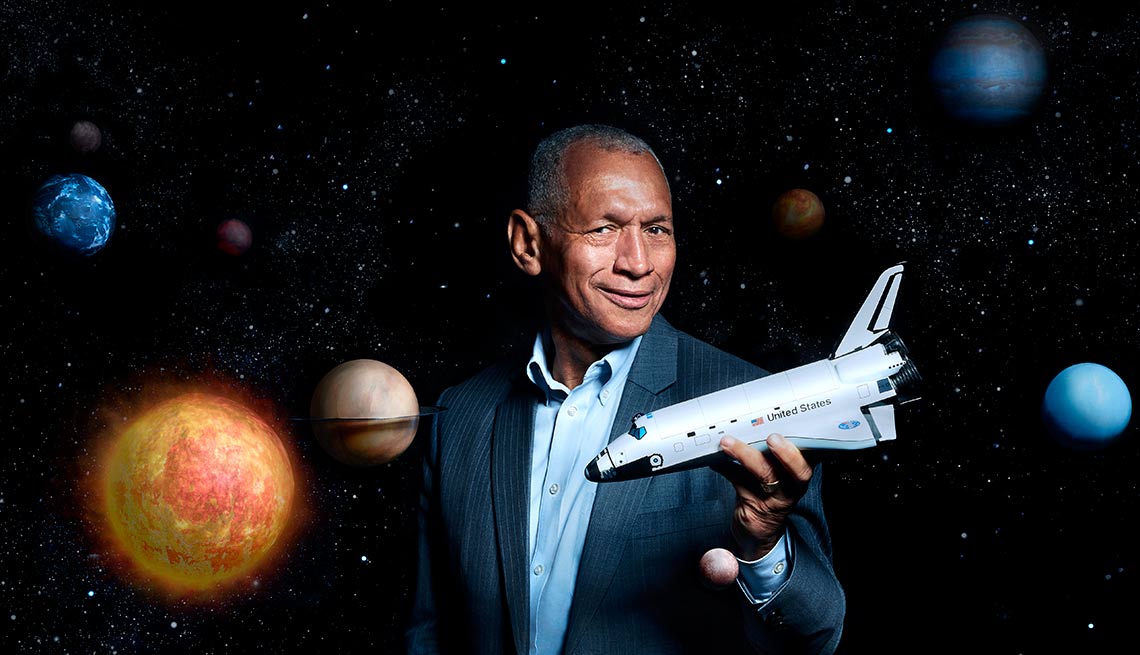Play all audios:
THE LAST TIME YOU WERE IN SPACE WAS 1994, AND YOU WERE 47 YEARS OLD. HOW OLD IS TOO OLD FOR SPACE TRAVEL? There is no too old. One of my role models is former astronaut and Sen. John Glenn.
He was 77 the last time he flew in space. Jean-Jacques Dordain, former head of the European Space Agency, and I have a deal: When we turn 77, we're both going to try to travel in space
together. U.S. ASTRONAUT SCOTT KELLY WAS 51 WHEN HE TRAVELED ABOARD THE INTERNATIONAL SPACE STATION LAST YEAR, AND 52 WHEN HE RETURNED 340 DAYS LATER. COMPARE YOUR EXPERIENCES. I am a space
shuttle veteran, a space camper. I'm not sure that I could do what Scott Kelly did and come back like Superman; his condition was incredible after a trip that long. When I flew, we were
still trying to figure out how to deal with muscle loss and bone loss, but we're overcoming those things today. DID YOU ALWAYS WANT TO EXPLORE SPACE? As a kid, I was fascinated by
space flight, but never, ever, ever harbored any expectation that I would do it. It was a result of growing up in the segregated South and having been conditioned that there are things that
you can do and things you cannot do. There were no blacks in the space program. WHAT CHANGED YOUR THINKING? I met Ron McNair, the second African American to fly in space. He asked if I was
going to apply for the space program after Marines flight school, and I told him, "They'd never pick me." He looked me in the eye and said, "That's the dumbest thing
I ever heard. How do you know if you don't ask?" He embarrassed me into filling out my application. MARS IS THE NEW SPACE FRONTIER. WILL YOU GO? Charles Bolden is a NASA
administrator, former astronaut, retired U.S. Marine Corps major general and test pilot. by Poon Watchara-Amphaiwan I would love to. Fourteen years from now is about when we'll be ready
to send humans to Mars. We still have work to do before deciding on a mission of many orbits or a landing on one of its moons. NASA'S UNMANNED JUNO MISSION IS SCHEDULED TO ARRIVE AT
JUPITER ON JULY 4, FIVE YEARS AFTER LAUNCH. WHAT ARE YOUR HOPES? Its purpose is to orbit and study the planet for a number of years. Juno has giant solar cells, new technology, so this
satellite is going to Jupiter on solar power. It is unique. We'll get closer looks at Europa, Jupiter's giant moon, where scientists believe there is a really good chance of life.

